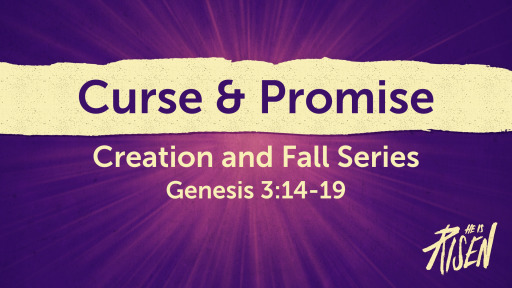Curse & Promise

The curse and the promise are proclaimed over Adam’s life in his fallen state in terms of four great ideas: enmity with the serpent, the pain of childbirth, the toil of work, and death.
The world is changed and destroyed in that human beings in their dividedness can no longer live with God, with one another, and with nature; yet, in this dividedness between tob and ra, they also cannot live without God, without one another, and without nature.
The serpent was right: You will be like God; you will by no means die, that is, die the death that means ceasing to exist.
But the Creator was also right: On the day that you eat from it you shall die, that is, die the death that means being sicut deus.
Yet now death becomes for human beings, who live because they are preserved in compassion, a promise held out to them by the God of grace. Adam cannot but understand this death, this turning into dust, as the death of his present existence in death, his being sicut deus. The death of death—that is the promise this curse carries.
Adam understands this death of death to mean sinking back into the nothingness out of which God created the world. To him the final promise is nothingness, nothingness as the death of death. For this reason Adam sees his life as preserved for nothingness. After all, how should Adam, who has fallen from faith, know that the real death of death is never nothingness but only the living God, indeed that there is no such thing as nothingness, that the promise of the death of death never means nothingness but only life, Christ himself? How should Adam know that, in this promise of death, already the end of death, the resurrection of the dead, was being spoken of? How could Adam hear announced already in the peace of death, and returning to mother earth, the peace that God wishes once more to conclude with the earth, the peace that God wishes to establish over a new and blessed earth in the world of the resurrection?
